
Tamale: The Heartbeat of Northern Ghana
Tamale, the capital of the Northern Region of Ghana, is a vibrant city bursting with culture and history. As you explore its streets, you will find a unique blend of traditional and modern lifestyles. The city's architecture is a mix of mud huts and modern buildings, reflecting its rich heritage and rapid development. The central market in Tamale is a must-visit. Here, you can find everything from local crafts and textiles to fresh produce. The bustling atmosphere and friendly vendors make it a perfect place to immerse yourself in the local culture. Don't forget to try some local dishes like 'Tuo Zaafi' and 'Waakye' which are staples in the region. For those interested in history, the Tamale Cultural Center offers a deep dive into the traditions and customs of the Northern people. The center often hosts traditional dance performances and art exhibitions. Additionally, the city is a gateway to Mole National Park, where you can embark on a safari adventure to see elephants, antelopes, and a variety of bird species. Tamale is also known for its vibrant arts scene. The Sagnarigu community is famous for its traditional smocks, which are colorful and intricately designed. Visiting the local artisans and watching them create these beautiful garments is an experience not to be missed.
Local tips in Tamale
- Visit the central market early in the morning to experience the hustle and bustle at its peak and get the freshest produce.
- Dress modestly, especially when visiting religious sites, to respect local customs and traditions.
- Hire a local guide for a more enriching experience when exploring Mole National Park.
- Try to learn a few basic phrases in Dagbani, the local language, to connect better with the residents.
- Don't miss out on the traditional dance performances at the Tamale Cultural Center for an authentic cultural experience.
Tamale: The Heartbeat of Northern Ghana
Tamale, the capital of the Northern Region of Ghana, is a vibrant city bursting with culture and history. As you explore its streets, you will find a unique blend of traditional and modern lifestyles. The city's architecture is a mix of mud huts and modern buildings, reflecting its rich heritage and rapid development. The central market in Tamale is a must-visit. Here, you can find everything from local crafts and textiles to fresh produce. The bustling atmosphere and friendly vendors make it a perfect place to immerse yourself in the local culture. Don't forget to try some local dishes like 'Tuo Zaafi' and 'Waakye' which are staples in the region. For those interested in history, the Tamale Cultural Center offers a deep dive into the traditions and customs of the Northern people. The center often hosts traditional dance performances and art exhibitions. Additionally, the city is a gateway to Mole National Park, where you can embark on a safari adventure to see elephants, antelopes, and a variety of bird species. Tamale is also known for its vibrant arts scene. The Sagnarigu community is famous for its traditional smocks, which are colorful and intricately designed. Visiting the local artisans and watching them create these beautiful garments is an experience not to be missed.
When is the best time to go to Tamale?
Iconic landmarks you can’t miss
Aliu Mahama Sports Stadium, Tamale
Experience the passion of Ghanaian sports at Aliu Mahama Sports Stadium in Tamale, where community spirit and excitement come alive.
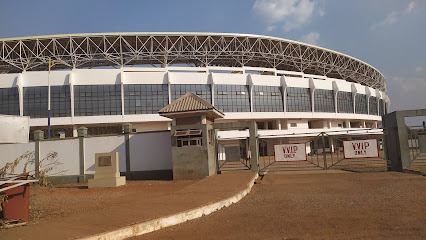
Melcom Tamale Shop
Experience the vibrant shopping culture of Tamale at Melcom Tamale Shop, where local crafts meet modern retail in a lively atmosphere.
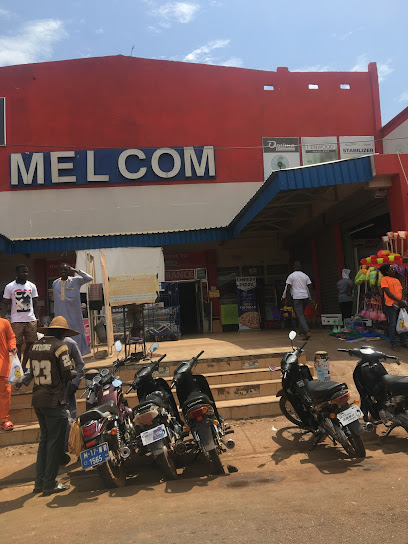
King Davids Spot
Experience Tamale's vibrant culinary scene at King David's Spot, where grilled delicacies and local flavors create unforgettable dining moments.
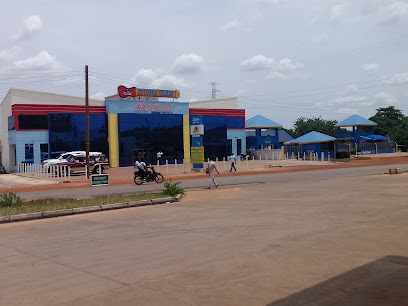
OASIS LOUNGE BAR & RESTAURANT
Experience the vibrant flavors and cozy atmosphere of Oasis Lounge Bar & Restaurant in Tamale, where culinary delights await every visitor.
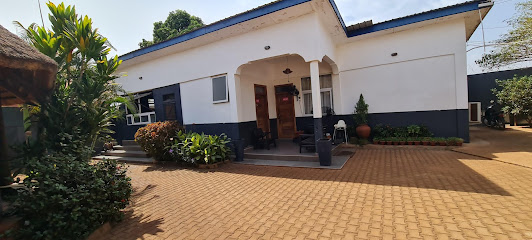
Catholic Archdiocesan Guest House
Experience the warmth of Tamale at the Catholic Archdiocesan Guest House, your serene retreat in the heart of Northern Ghana.

Aboabo Market
Explore the lively Aboabo Market in Tamale, where vibrant culture meets local commerce in a unique shopping experience filled with Ghanaian traditions.
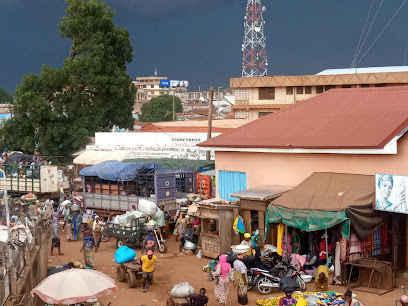
Wooden Bakery, Coffee Shop, Bar And Restaurant
Experience the rich flavors of Ghana at Wooden Bakery, Coffee Shop, Bar and Restaurant, a culinary gem in Tamale offering delectable pastries and refreshing beverages.
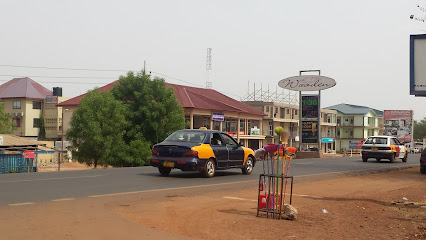
Regal Hotel
Discover comfort and hospitality at the Regal Hotel in Tamale, your gateway to the vibrant culture and rich heritage of Northern Ghana.
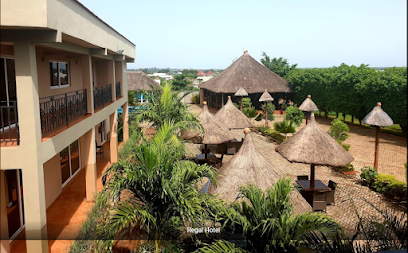
YAANAA HALL
Discover the essence of Tamale at YAANAA HALL, a hostel that combines comfort with cultural immersion in the heart of Northern Ghana.
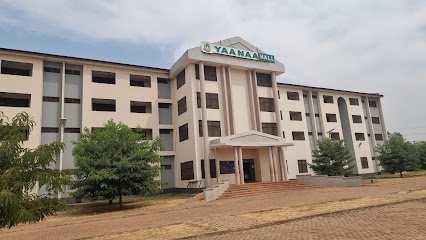
GLOBAL DREAM HOTEL
Discover comfort and convenience at Global Dream Hotel in Tamale, your gateway to Northern Ghana's rich culture and stunning landscapes.
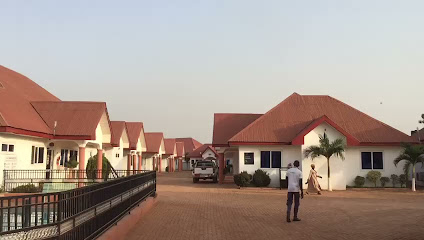
Picorna Hotel
Discover the comfort and cultural richness of Picorna Hotel in Tamale, where hospitality meets local charm for an unforgettable stay.
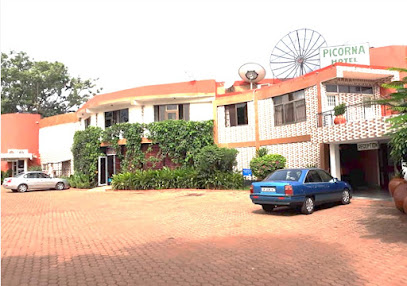
Jeyads Lodge
Experience the heart of Northern Ghana at Jeyads Lodge, where comfort meets culture in the vibrant city of Tamale.
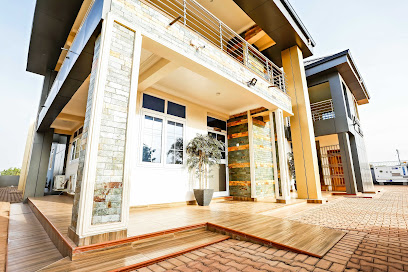
Tamale Central Mosque
Explore the architectural beauty and spiritual calm of Tamale Central Mosque, a must-visit cultural landmark in the heart of Tamale, Ghana.
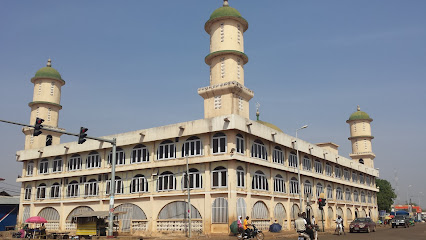
Mum Hotel
Discover comfort and local charm at Mum Hotel in Tamale, your ideal retreat for a memorable stay in Ghana's vibrant Northern Region.
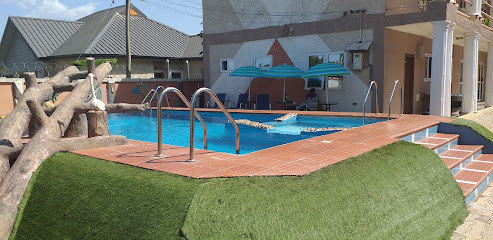
Kaladan Park
Explore the tranquil beauty of Kaladan Park in Tamale, a serene escape filled with lush greenery and vibrant local culture.
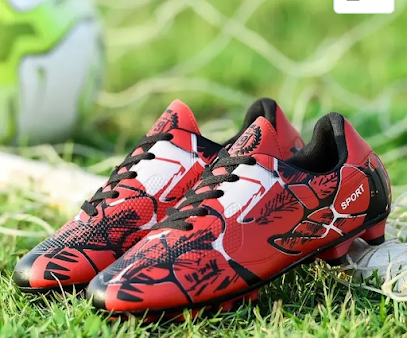
Unmissable attractions to see
Kaladan Park
Experience the tranquility of Kaladan Park, a lush green oasis in Tamale perfect for relaxation, picnics, and cultural immersion.
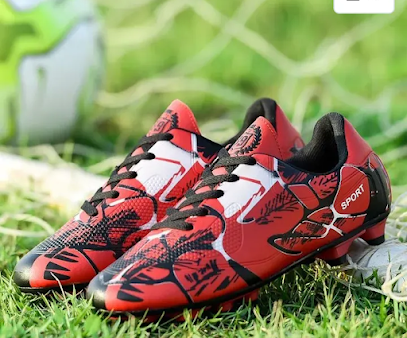
Sagnarigu Chief Palace
Immerse yourself in the rich heritage and stunning architecture of Sagnarigu Chief Palace in Tamale, a crown jewel of Ghana's cultural landscape.
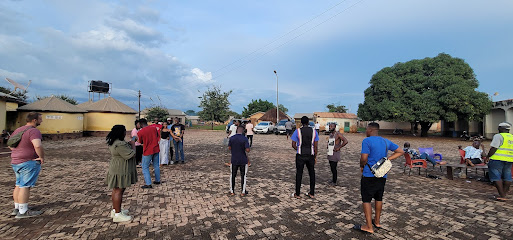
VRA /NEDCo Club house
Explore the tranquil VRA/NEDCo Club House in Tamale, a serene park perfect for picnics, social gatherings, and enjoying the beauty of nature.
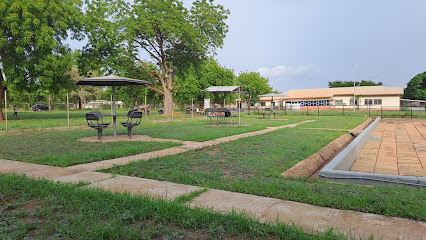
North Breeze Farms Tamale
Discover the natural beauty and tranquility of North Breeze Farms Tamale, a peaceful park perfect for relaxation and family outings in Northern Ghana.
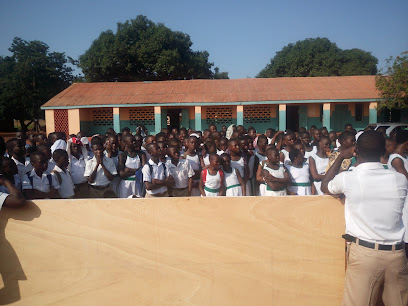
NOBISCO forest
Explore the enchanting NOBISCO Forest in Tamale, Ghana, a national forest rich in biodiversity and outdoor adventure for nature lovers.
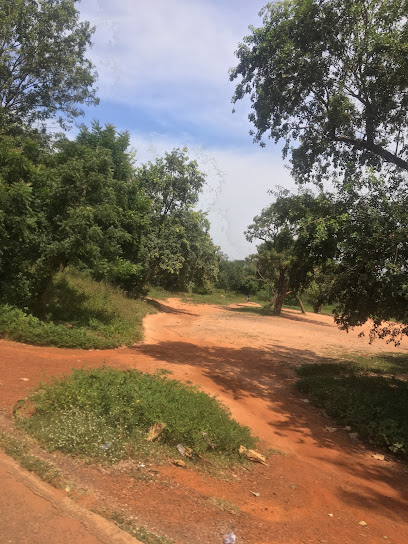
Nkrumah-voli
Discover the rich cultural tapestry of Tamale at Nkrumah-voli Museum – a journey through Ghana's history and heritage awaits you.
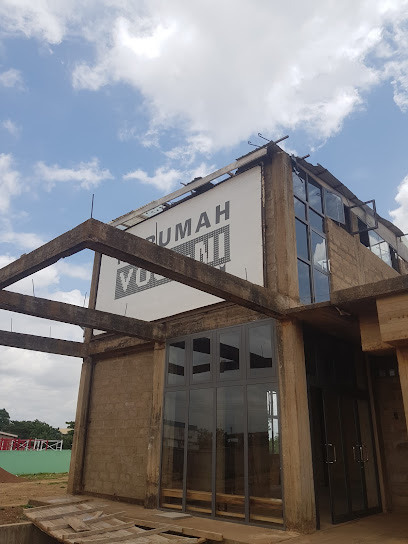
SCCA-REDCLAY STUDIOS
Experience the vibrant artistry and cultural heritage of Tamale at SCCA-RedClay Studios, a hub for local creativity and traditional crafts.
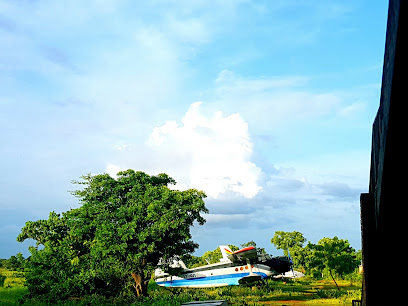
Tamale Technical University's junction
Discover the vibrant culture at Tamale Technical University Junction, a must-visit hub for tourists in Tamale, Ghana.
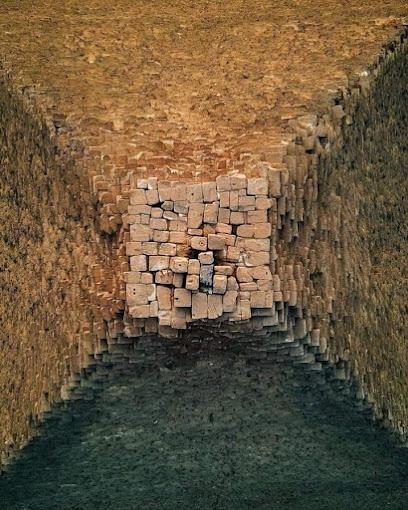
Savannah Standard Tours
Explore the vibrant culture and stunning landscapes of Tamale with Savannah Standard Tours, your gateway to an unforgettable Ghanaian adventure.
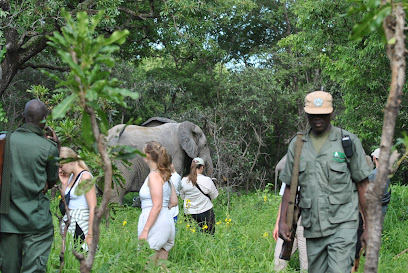
Garden Glories
Explore Garden Glories in Nyesie for an enchanting experience surrounded by vibrant flora and serene landscapes. A must-visit for nature lovers!
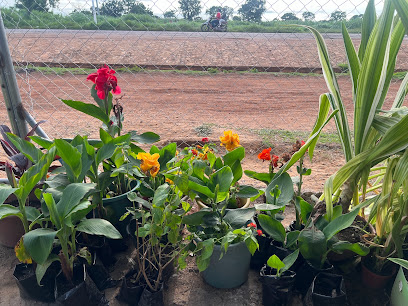
Horticulture Plant House
Explore the Horticulture Plant House in Tamale, a tranquil park showcasing diverse plant species and offering a serene escape into nature.
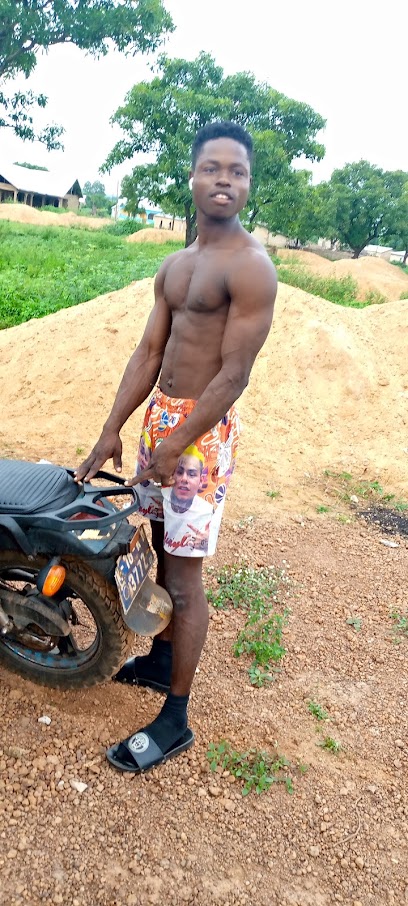
Assembly grounds
Experience the serene beauty of the Assembly Grounds in Pong Tamale, a perfect retreat for nature lovers and culture enthusiasts alike.
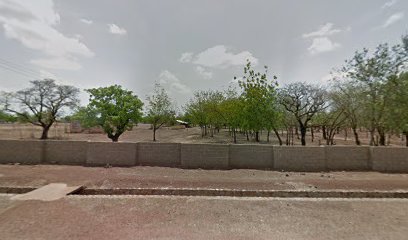
Mohammed alidu
Explore the peaceful Mohammed Alidu Park in Tamale, a lush green oasis for relaxation, cultural engagement, and outdoor enjoyment.

Essential places to dine
King Davids Spot
Experience authentic Ghanaian grilling at King David's Spot in Tamale – where flavor meets tradition in every delicious bite.
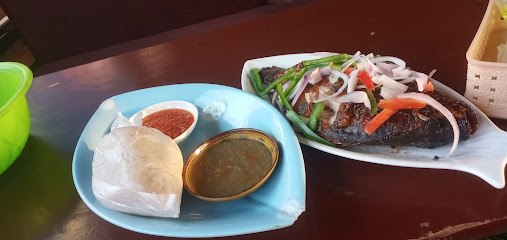
OASIS LOUNGE BAR & RESTAURANT
Discover culinary delights at Oasis Lounge Bar & Restaurant in Tamale - where local flavors meet international cuisine in a vibrant setting.
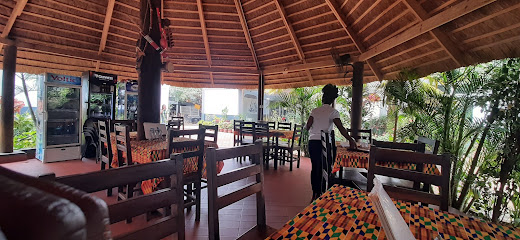
Luxury Restaurant
Experience upscale dining in Tamale with exquisite local flavors and luxurious ambiance.
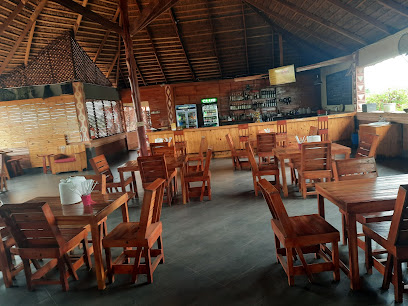
Wooden Bakery, Coffee Shop, Bar And Restaurant
Experience the rich flavors of Tamale at Wooden Bakery: where freshly baked delights meet local hospitality.
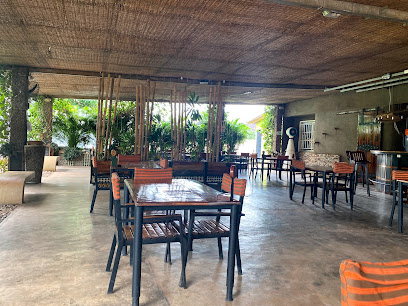
Hajia Sawuda Food, Nyohini Round About
Experience authentic Ghanaian cuisine at Hajia Sawuda Food in Tamale - where every dish tells a story.
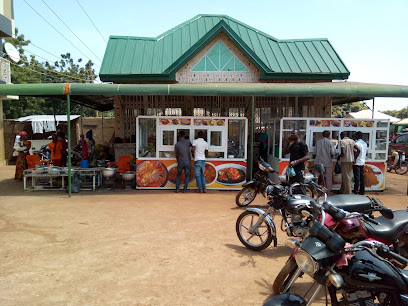
Bernard's Takeout
Experience authentic Ghanaian cuisine and vibrant nightlife at Bernard's Takeout in Tamale - your go-to spot for delicious meals and live music.
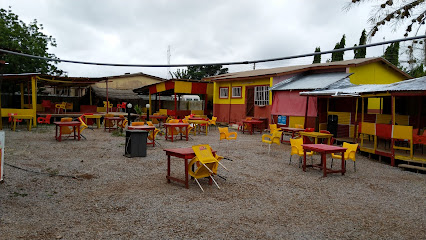
Shallot Fast Food
Experience the vibrant flavors of Ghana at Shallot Fast Food in Tamale - where fast meets flavorful!
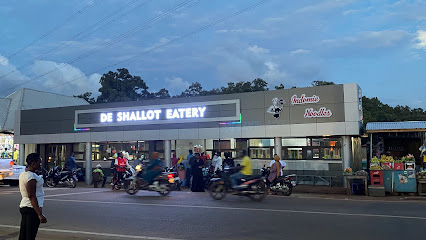
The Dons Pub, Gumani
Experience authentic Ghanaian cuisine at The Dons Pub in Tamale - where local flavors meet vibrant atmosphere.
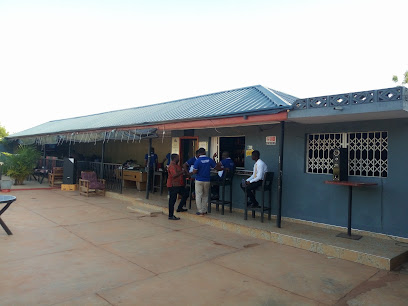
Giddipass Crest
Experience authentic Ghanaian flavors at Giddipass Crest in Tamale—a culinary gem offering diverse dishes in a welcoming atmosphere.
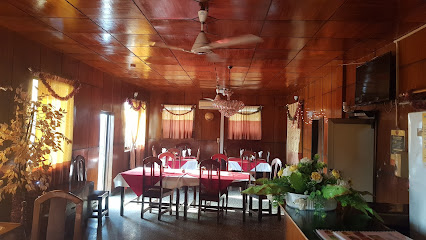
Swad International Kitchen & Bar
Discover authentic flavors at Swad International Kitchen & Bar in Tamale - where continental meets Indian cuisine for an unforgettable dining experience.
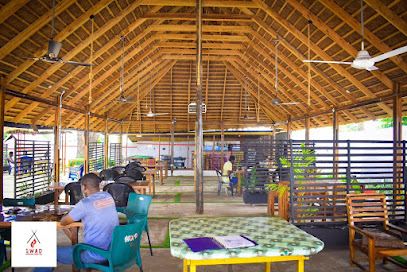
Nananom Restaurant
Discover authentic Ghanaian cuisine at Nananom Restaurant in Tamale - a culinary delight showcasing rich flavors and warm hospitality.
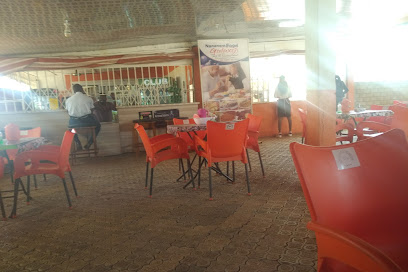
Mojos Restaurant
Discover authentic Ghanaian cuisine at Mojos Restaurant in Tamale - where local flavors meet warm hospitality.
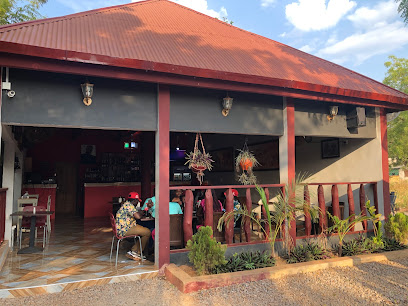
De Shallot Eatery
Experience authentic Ghanaian cuisine at De Shallot Eatery in Tamale - where flavor meets tradition.
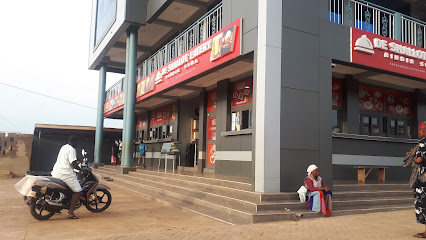
TACORABAMA PIZZA HOUSE
Discover unique flavors at Tacorabama Pizza House in Tamale - where traditional Ghanaian ingredients meet delicious pizza.
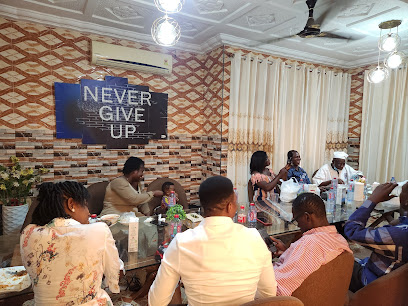
BlackBox Restaurant
Experience authentic Ghanaian cuisine blended with international flavors at BlackBox Restaurant in Tamale.
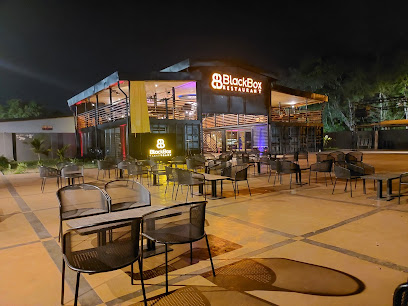
Markets, malls and hidden boutiques
Melcom Tamale Shop
Discover the lively Melcom Tamale Shop, your go-to destination for shopping in Tamale, Ghana, offering a variety of local goods and unique souvenirs.
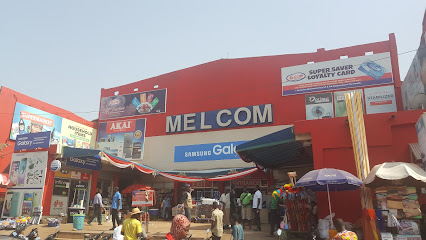
MELCOM
Discover the heart of Tamale at MELCOM Shopping Mall, a vibrant shopping destination blending local culture with modern retail experiences.
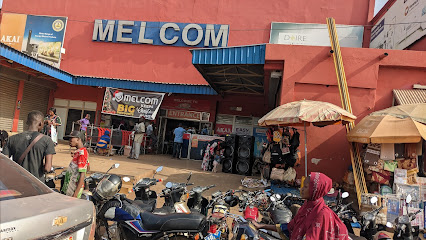
Quality First Shopping Center
Explore the vibrant Quality First Shopping Center in Tamale, a shopping paradise offering diverse stores, delicious food, and local culture.
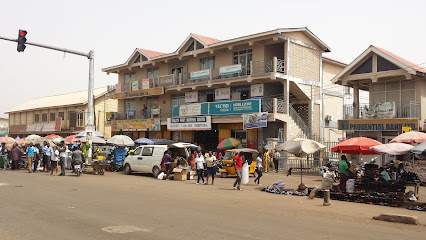
Forsmuel Shopping Center
Discover Forsmuel Shopping Center in Tamale: a vibrant hub of shopping, dining, and entertainment reflecting the spirit of Northern Ghana.
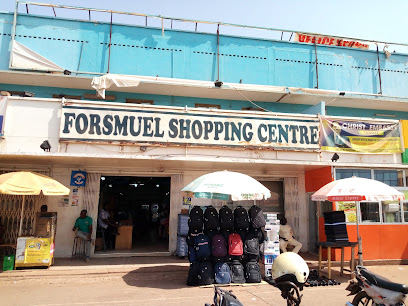
Mikkimart Supermarket
Explore Mikkimart Supermarket in Tamale for a unique shopping experience filled with local flavors and cultural treasures.
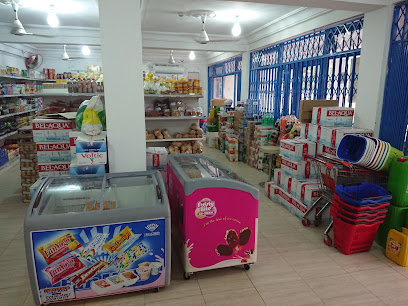
Jowato SME Marketplace
Experience the vibrant e-commerce hub of Jowato SME Marketplace in Tamale, where local culture and entrepreneurship thrive.
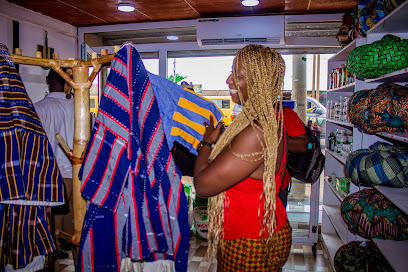
Tamale Central
Discover the vibrant shopping scene and cultural heartbeat of Tamale Central, a must-visit mall for every traveler in Ghana.
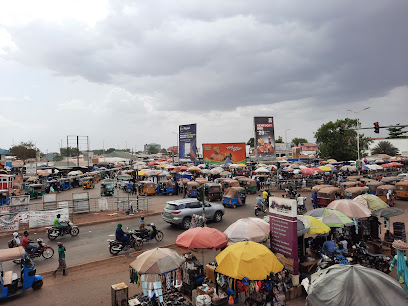
Zuks Multi Mart
Discover the vibrant Zuks Multi Mart in Tamale, a grocery store filled with local and international products to enhance your travel experience.
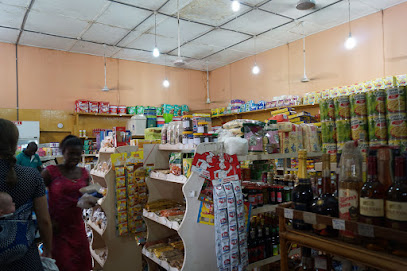
Electromart - Tamale
Explore the latest in technology at Electromart - Tamale, your ultimate destination for electronics and gadgets in Ghana.
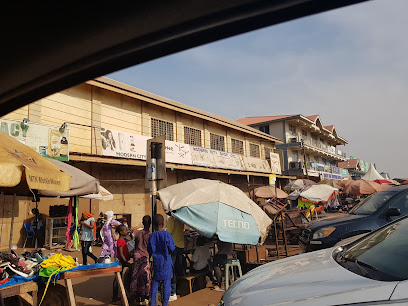
SeKaf Ghana Ltd/TAMA Cosmetics
Explore the finest Ghanaian cosmetics at SeKaf Ghana Ltd/TAMA Cosmetics in Tamale, your gateway to authentic beauty and skincare products.

Smocky World
Explore the vibrant world of Ghanaian fabrics at Smocky World, where tradition meets style in every unique piece.
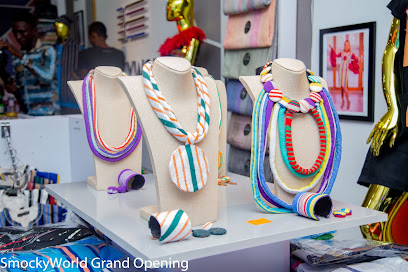
Hisense Ghana - Tamale Showroom
Discover the latest electronics and home appliances at Hisense Ghana - Tamale Showroom, located in the vibrant heart of Tamale's Central Market.
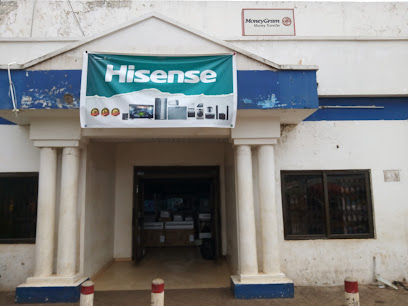
Canni's Thrift
Explore Canni's Thrift in Tamale for unique second-hand treasures that reflect local culture and style.
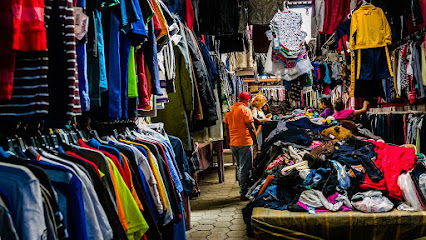
Flying Angel gift shop
Explore the vibrant Flying Angel Gift Shop in Tamale for unique Ghanaian crafts and souvenirs that capture the essence of local culture.
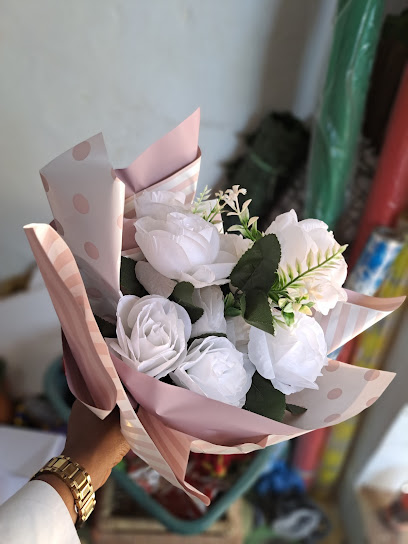
Faith Wedding Rings Tamale
Discover exquisite wedding rings at Faith Wedding Rings in Tamale, where quality meets elegance for your special day.

Essential bars & hidden hideouts
OASIS LOUNGE BAR & RESTAURANT
Discover the vibrant culinary scene at Oasis Lounge Bar & Restaurant in Tamale, offering a mix of local flavors and international cuisine.
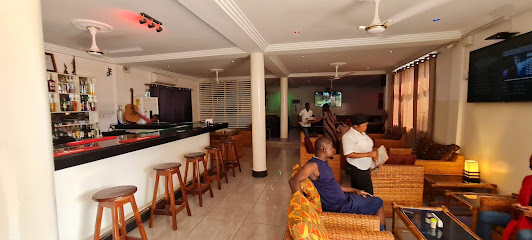
The Dons Pub, Gumani
Experience the vibrant flavors of Tamale at The Dons Pub, where local cuisine meets a welcoming atmosphere for an unforgettable dining experience.
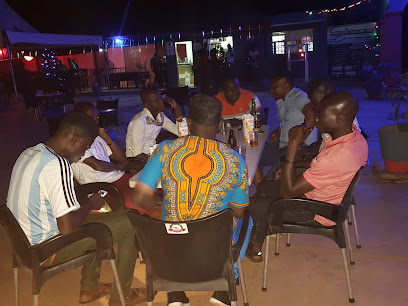
The Guys Pub
Discover the vibrant ambiance and local flavors at The Guys Pub, an essential stop for nightlife in Tamale, Ghana.
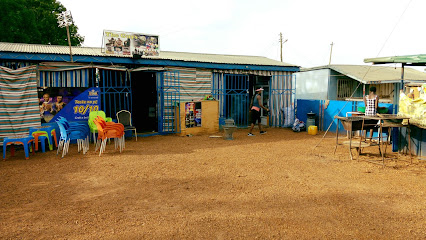
Point Seven Bar
Discover the vibrant scene at Point Seven Bar in Tamale, where delightful drinks and local ambiance come together for an unforgettable experience.
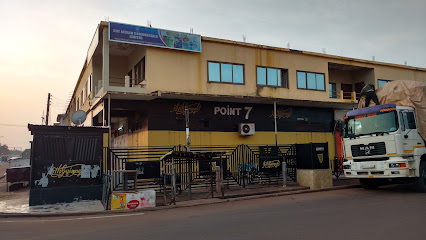
King David
Discover King David, a vibrant pub in Tamale where local culture meets a lively atmosphere, perfect for unwinding and enjoying authentic Ghanaian cuisine.
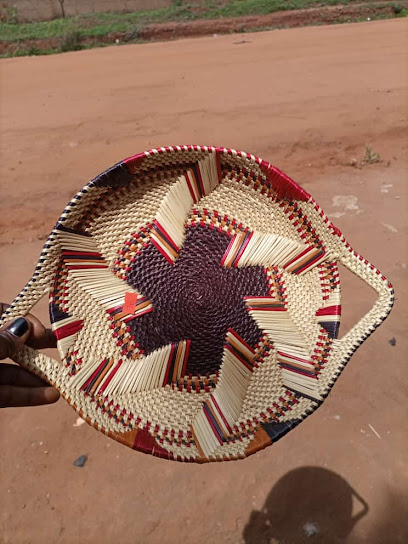
Happy Dayz Lounge
Discover the vibrant nightlife and local cuisine at Happy Dayz Lounge, the ultimate destination in Tamale for relaxation and entertainment.
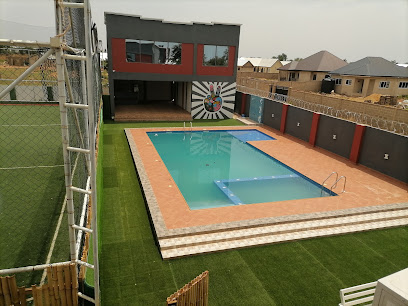
Element bar
Experience the vibrant nightlife of Tamale at Element Bar, where every drink tells a story and every visit is unforgettable.
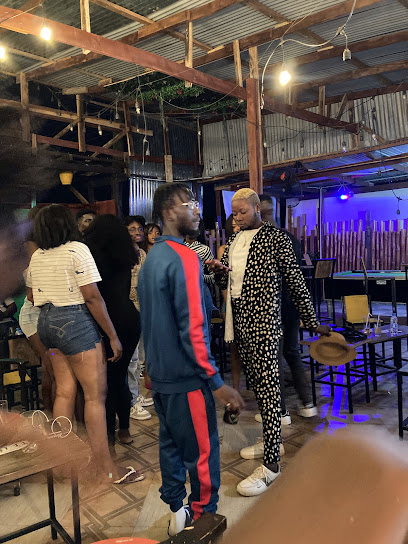
KIT KAT PUB
Discover the lively spirit of Tamale at Kit Kat Pub, where great drinks and vibrant nightlife create unforgettable memories.
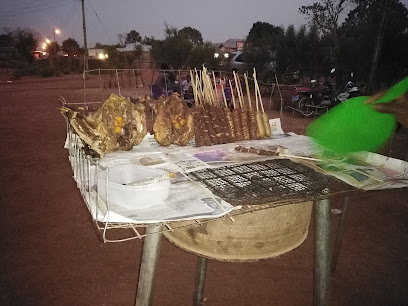
All Friends Spot
Discover the vibrant bar scene at All Friends Spot in Tamale, Ghana, where local culture and refreshing drinks come together for an unforgettable experience.
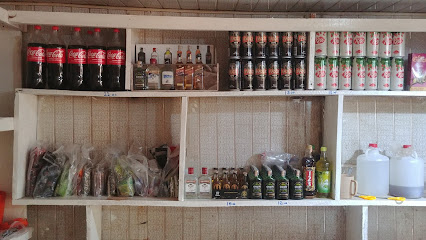
White horse
Discover the vibrant atmosphere of the White Horse bar in Tamale, where good drinks and local culture come together for an unforgettable experience.
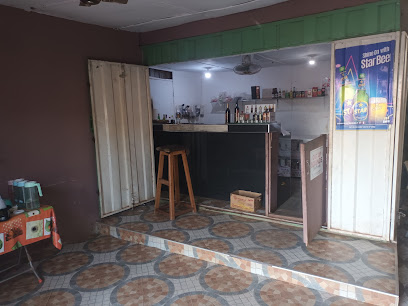
Jacy's Pub
Experience the vibrant nightlife of Tamale at Jacy's Pub, where local culture meets friendly vibes and refreshing drinks.
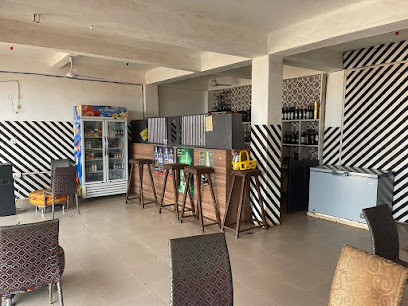
The HideOut
Discover The HideOut in Tamale - where delightful grilled dishes meet a cozy atmosphere in the heart of Ghana.

Giggles Bar
Experience the vibrant nightlife at Giggles Bar in Tamale, where laughter and good times come together in a welcoming atmosphere.

Corna Pub
Discover the lively energy and local charm at Corna Pub, a premier nightlife destination in Tamale, Ghana.
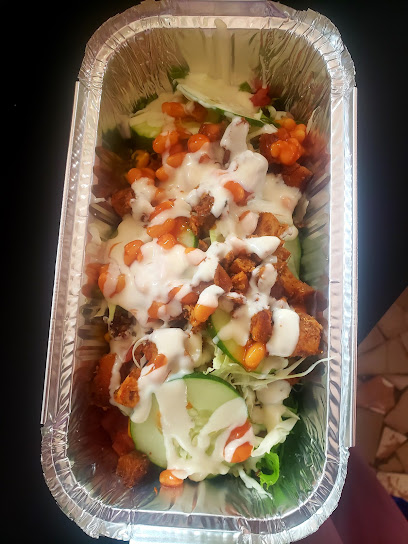
DELALY'S EATERY & BAR
Discover the vibrant flavors and welcoming atmosphere of Delaly's Eatery & Bar in Tamale, the heart of Ghana’s culinary scene.

Local Phrases
-
- HelloSalaam aleikum
[sa-laam a-lei-kum] - GoodbyeZaabɔ
[zaa-bɔ] - YesEi
[ei] - NoAyi
[ayi] - Please/You're welcomeNaa
[naa] - Thank youSanɔ
[sa-no] - Excuse me/SorryYɛn ko
[yɛn ko] - How are you?Yaa yili ka?
[yaa yi-li ka] - Fine. And you?Yaa yili, yaa ni?
[yaa yi-li, yaa ni] - Do you speak English?Ŋa lɛ Ingilishi?
[ŋa le in-gi-li-shi] - I don't understandA yi ka n yuu
[a yi ka n yuu]
- HelloSalaam aleikum
-
- I'd like to see the menu, pleaseMallɛ menu yɛ, mi la
[mal-le me-nu ye, mi la] - I don't eat meatA yi gba sia yaa
[a yi gba sia yaa] - Cheers!Nsuom
[n-suo-m] - I would like to pay, pleaseMi la taa
[mi la taa]
- I'd like to see the menu, pleaseMallɛ menu yɛ, mi la
-
- Help!Wobɛda
[wo-be-da] - Go away!Bibini
[bi-bi-ni] - Call the Police!Bɛgya polis
[be-gya po-lis] - Call a doctor!Bɛgya dokita
[be-gya do-ki-ta] - I'm lostA yi kpa
[a yi kpa] - I'm illA yi yaa
[a yi yaa]
- Help!Wobɛda
-
- I'd like to buy...Mi la kɔ
[mi la kɔ] - I'm just lookingMi la hɔ
[mi la hɔ] - How much is it?Dɔɔnyi yɛ la?
[dɔɔ-nyi ye la] - That's too expensiveBi yɛ dɔɔnyi
[bi ye dɔɔ-nyi] - Can you lower the price?Kɔ kɔŋ yɛ la?
[ko koŋ ye la]
- I'd like to buy...Mi la kɔ
-
- What time is it?Ŋaa ni ka la?
[ŋaa ni ka la] - It's one o'clockA yaa leŋŋi
[a yaa leŋŋi] - Half past (10)Leŋŋi yaa ba
[leŋŋi yaa ba] - MorningZuuri
[zuu-ri] - AfternoonZaŋ
[zaŋ] - EveningZuuri
[zuu-ri] - YesterdayZun
[zun] - TodayZi
[zi] - TomorrowFara
[fa-ra] - 1Bi
[bi] - 2Ba
[ba] - 3Za
[za] - 4Naa
[naa] - 5Naa bi
[naa bi] - 6Naa ba
[naa ba] - 7Naa za
[naa za] - 8Naa naa
[naa naa] - 9Naa bi ba
[naa bi ba] - 10Naa bi za
[naa bi za]
- What time is it?Ŋaa ni ka la?
-
- Where's a/the...?Ɛheya...
[ɛ-he-ya] - What's the address?Yaa yili ni?
[yaa yi-li ni] - Can you show me (on the map)?Kɔɔni la (ni maa ma?)
[ko-ni la (ni ma ma)] - When's the next (bus)?Yaa paa?
[yaa paa] - A ticket (to ....)Bi tikiti (ni ....)
[bi ti-ki-ti (ni)]
- Where's a/the...?Ɛheya...
History of Tamale
-
Tamale's history dates back centuries with its early settlements rooted in the Dagbon Kingdom. The area was initially inhabited by the Dagomba people, who established their presence and laid the foundational culture and traditions that still influence the region today.
-
The late 19th and early 20th centuries saw the arrival of European colonizers in Northern Ghana, including Tamale. The British established administrative control, making Tamale a key administrative center. This period saw significant changes in infrastructure, including the construction of roads and government buildings.
-
During the colonial era, Tamale evolved into the administrative headquarters for the Northern Territories of the Gold Coast. The town became a focal point for governance and development projects, which led to increased migration and the growth of a diverse population.
-
After Ghana gained independence in 1957, Tamale continued to grow and modernize. The establishment of key institutions, such as the University for Development Studies in 1992, marked a significant step in educational and socio-economic development, transforming Tamale into an educational hub.
-
Tamale is renowned for its rich cultural heritage, prominently featuring traditional music, dance, and festivals. The Damba Festival, celebrated by the Dagomba people, is one of the most significant cultural events, showcasing the town's vibrant traditions and community spirit.
-
Tamale’s economy has historically been driven by agriculture, but in recent decades, it has diversified to include trade, services, and small-scale industries. The Tamale Central Market is a bustling hub of commercial activity, reflecting the town's role as a key economic center in Northern Ghana.
-
Tamale boasts a mix of traditional and modern architecture. Notable landmarks include the Tamale Central Mosque, one of the largest and most significant religious structures in the region, and the Chief’s Palace, which serves as a symbol of traditional authority and cultural heritage.
-
Tamale has played a significant role in Ghanaian politics, often serving as a political stronghold for various parties. The town's political landscape has been shaped by its influential leaders and its strategic importance in national elections.
Tamale Essentials
-
Tamale is accessible via Tamale Airport (TML), which has domestic flights from Kotoka International Airport in Accra. Several airlines operate daily flights between Accra and Tamale, making it a convenient entry point. Alternatively, you can reach Tamale by bus from various parts of Ghana, including Accra, Kumasi, and Bolgatanga. The bus journey from Accra to Tamale typically takes about 10-12 hours.
-
In Tamale, taxis are the most common mode of transportation and are readily available. You can also use motorbike taxis, known locally as 'Okadas,' for shorter distances. Public buses and minibuses, called 'trotros,' operate within the city and to nearby towns. For a more immersive experience, consider renting a bicycle to explore the city at your own pace. Car rentals are also available for those who prefer to drive.
-
The official currency in Ghana is the Ghanaian Cedi (GHS). Credit and debit cards are accepted in major hotels, restaurants, and some shops, but cash is preferred, especially in smaller establishments and local markets. ATMs are available throughout Tamale, but it's advisable to carry some cash for convenience. Currency exchange services are available at banks and exchange bureaus.
-
Tamale is generally a safe city for tourists. However, it is essential to take standard safety precautions. Avoid walking alone at night in unfamiliar areas and be cautious of your belongings in crowded places. Areas like Lamashegu and Aboabo have higher crime rates, so it's best to exercise extra vigilance when visiting these neighborhoods. Always use reputable transportation services and avoid displaying valuable items openly.
-
In case of an emergency, dial 191 for police assistance and 193 for medical emergencies. Tamale Teaching Hospital is the main medical facility in the city and provides comprehensive healthcare services. Pharmacies are available throughout the city for minor health concerns. It is advisable to have travel insurance that covers medical emergencies. For any consular support, contact your country's embassy or consulate in Accra.
-
Fashion: Do dress modestly, especially when visiting religious sites. Avoid wearing revealing clothing. Religion: Do respect local customs and traditions. Remove your shoes before entering mosques and always ask for permission before taking photographs inside. Public Transport: Do be respectful and courteous to other passengers. Avoid loud conversations and keep your belongings secure. Greetings: Do greet people with a handshake and a smile. It's customary to ask about someone's well-being before proceeding with conversations. Eating & Drinking: Do try local dishes such as 'Tuo Zaafi' and 'Fufu.' Don't eat with your left hand, as it is considered impolite.
-
To experience Tamale like a local, visit the central market where you can buy fresh produce and traditional crafts. Engage with the locals; they are friendly and often eager to share their culture and traditions. Don't miss a visit to the National Cultural Centre, which offers insights into the region's history and art. For a unique experience, attend a traditional dance performance or a local festival to immerse yourself in the vibrant culture of Tamale.
Trending Landmark in Tamale
-
Aliu Mahama Sports Stadium, Tamale
-
Melcom Tamale Shop
-
King Davids Spot
-
OASIS LOUNGE BAR & RESTAURANT
-
Catholic Archdiocesan Guest House
-
Aboabo Market
-
Wooden Bakery, Coffee Shop, Bar And Restaurant
-
Regal Hotel
-
YAANAA HALL
-
GLOBAL DREAM HOTEL
-
Picorna Hotel
-
Jeyads Lodge
-
Tamale Central Mosque
-
Mum Hotel
-
Kaladan Park
Nearby Cities to Tamale
-
Things To Do in Wa
-
Things To Do in Sunyani
-
Things To Do in Atakpamé
-
Things To Do in Kumasi
-
Things To Do in Kpalimé
-
Things To Do in Ouagadougou
-
Things To Do in Ho
-
Things To Do in Notse
-
Things To Do in Ziniaré
-
Things To Do in Koudougou
-
Things To Do in Koforidua
-
Things To Do in Lokossa
-
Things To Do in Bobo-Dioulasso
-
Things To Do in Lomé
-
Things To Do in Accra







